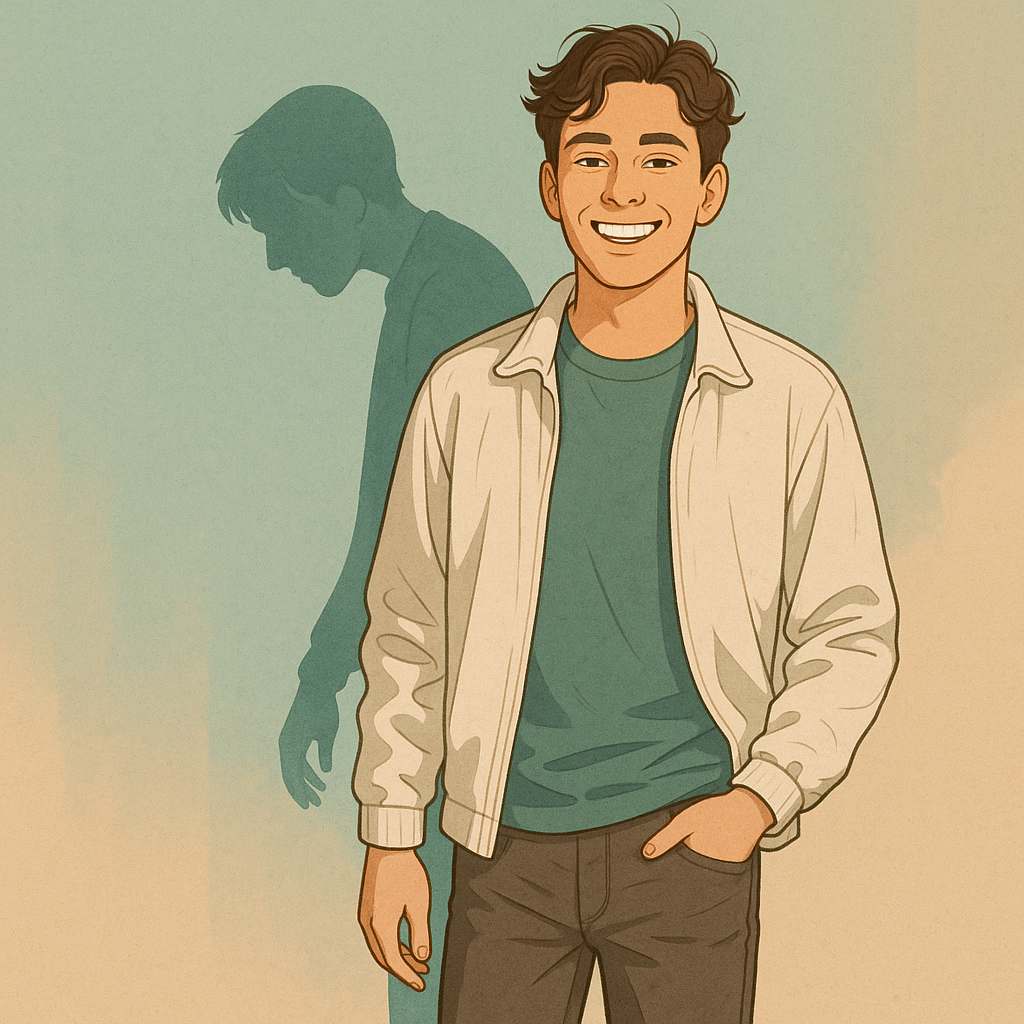Social Anxiety and the Performance of Being OK

It’s a Friday night, and you’ve been invited out. You want to say yes, but your mind is already rehearsing every possible awkward moment.
What if no one talks to me?
What if I don’t know what to say?
What if I’m too quiet… or too much?
You respond with a polite, “Maybe next time,” and spend the evening alone, scrolling through photos of people who look like they were born to belong. And the most exhausting part? Pretending you’re fine with it.
This is the performance of being OK—a silent dance that millions of people with social anxiety know all too well.
A Hidden Epidemic
Social anxiety isn’t just shyness. It’s not introversion. It’s a deep, often paralysing fear of being seen, and judged, for who you really are. And in a world of 24/7 visibility, curated identities, and constant feedback loops, this fear has never had more fuel.
At thinkWell, we meet people every day who feel like they’re performing their personality rather than living it. People who show up at work or school in emotional camouflage. People who are exhausted from smiling when they don’t feel safe.
We don’t think that makes you broken. We think that makes you human.
What Social Anxiety Can Look Like
• Overthinking every message before you send it
• Playing back conversations for hours afterwards
• Avoiding calls, events, or even eye contact
• Feeling like everyone else got a rulebook you missed
It’s not just nerves. It’s a mental tug-of-war between the desire to connect and the fear of rejection. And what makes it worse is the cultural expectation that you should “just get over it” or “fake it till you make it.”
But faking it isn’t the same as feeling it. And masking discomfort doesn’t make it go away.
The Performance of Wellness
In today’s digital world, even vulnerability has a performative edge. There’s pressure to talk about your struggles in an “inspirational” way. To be polished in your pain. To show your healing as a neat before-and-after montage.
But what about the messy middle?
At thinkWell, we don’t need you to have the words yet. We don’t expect the TED Talk version of your truth. You can show up anxious, inarticulate, unsure, or silent, and still be welcome.
That’s why we offer blended support:
• Coaching that gently helps you explore confidence and boundary-setting
• Counselling to understand the roots of self-doubt and shame
• Hypnotherapy to calm the nervous system and rewire anxious thought loops
It’s not about fixing you. It’s about creating a space where you don’t need to perform.
Learning to Be Seen, Safely
One of the most powerful experiences someone with social anxiety can have is being seen, and accepted. Not tolerated. Not pitied. Accepted.
That might mean sitting in silence with a therapist who doesn’t rush to fill the gap. It might mean practicing eye contact without fear. It might mean saying, “I’m not OK,” and hearing, “That’s OK.”
Quote: “Healing begins the moment someone sees you, without trying to change you.” – Anonymous
You Don’t Have to Perform Here
Social anxiety tells you to shrink. To script. To stay quiet.
thinkWell says: You can expand. You can experiment. You can exist, exactly as you are.
Whether you’re 17 or 37, whether you’re exhausted from overthinking or simply craving peace, we’re here to listen to what you’re not saying, too.
This isn’t about being confident overnight. It’s about learning, slowly and kindly, that you belong, even when you’re unsure.
Especially when you’re unsure.
